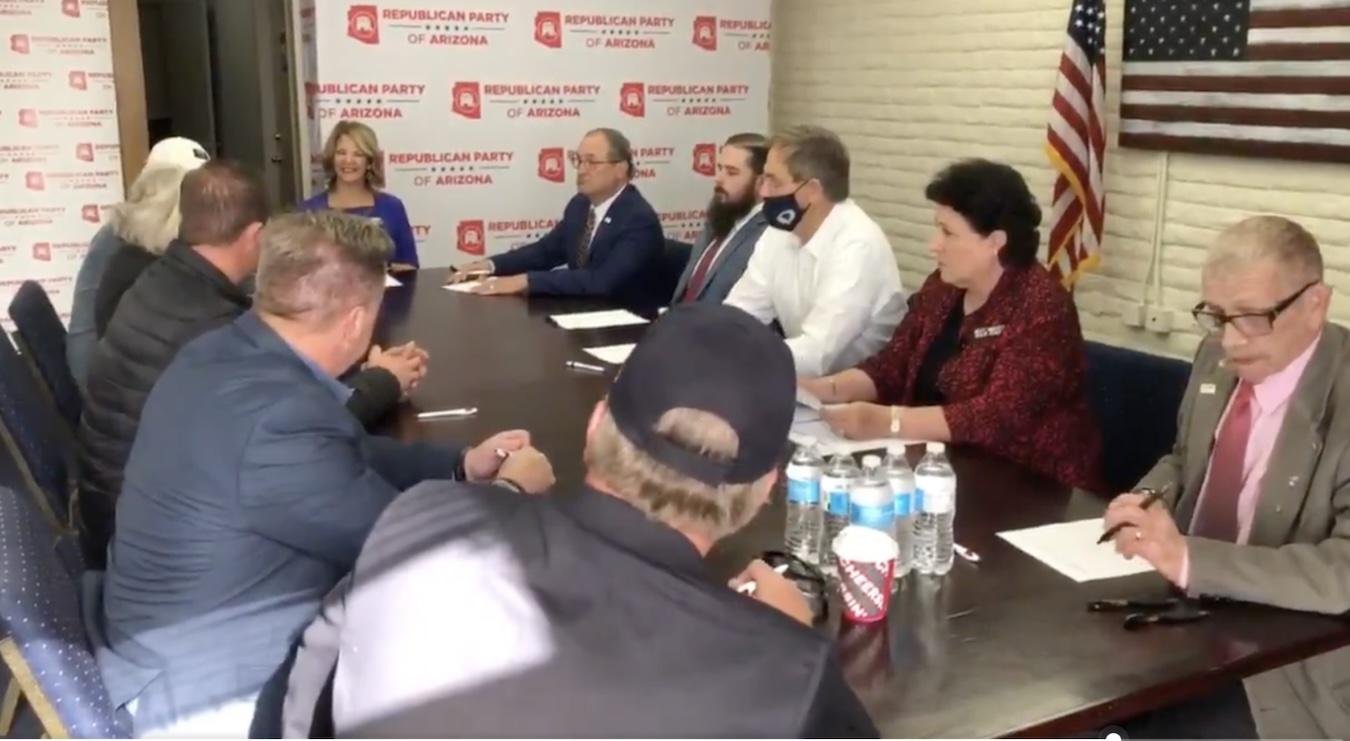arizona
Arizona Judge Weighs Free Speech Defense in Controversial Fake Electors Case

In a significant courtroom development, two individuals involved in Arizona’s controversial “fake electors” scheme have received a favorable ruling. A Maricopa County Superior Court judge permitted their motion to dismiss criminal charges to advance, citing an Arizona law aimed at curbing political prosecutions.
Former state lawmaker Anthony Kern and Mark Meadows, the 2020 chief of staff for Donald Trump, contend that their prosecution infringes upon Arizona’s anti-SLAPP law. This law is designed to protect against lawsuits that hinder public participation and free speech.
The charges stem from allegations that the pair and 14 others falsely declared Trump as the winner of Arizona’s 2020 presidential election. While two individuals have already pled guilty, the remaining defendants assert their actions were an exercise of First Amendment rights. They argue signing the fraudulent electoral documents constituted a legitimate political expression.
Judge Sam Myers acknowledged that the defendants met the initial requirements to warrant consideration of their motion, but he did not make a determination on the dismissal itself. Following the ruling, the Arizona Attorney General’s office indicated plans to appeal, emphasizing that filing fraudulent elector slates is not a lawful interpretation of free speech.
Attorney General Kris Mayes expressed dissatisfaction with the ruling, stating, “We disagree with this ruling, and we will pursue an appeal. It is not the lawful exercise of free speech to file forged slates of electors to deprive Arizona voters of their right to vote.”
Arizona’s anti-SLAPP law, extended in 2022 to encompass criminal prosecutions, emerged as a tool against those involved in the movement to overturn Biden’s election victory. While designed to protect free speech, it raises complex questions when applied to criminal actions supposedly aimed at undermining electoral integrity.
Kern celebrated the ruling on social media, claiming it to be a positive outcome for Arizona. The proceedings are expected to continue, with a trial anticipated by January 2026. Several individuals related to the case, including former Trump attorney Jenna Ellis, have cooperated with prosecutors, while others like local GOP activist Lorraine Pellegrino have pleaded guilty.
The list of indicted individuals includes notable figures such as Kelli Ward, the former Arizona GOP chairman, and various state legislators and political activists. Additionally, former Trump campaign officials, including Rudy Giuliani and Christina Bobb, face serious charges connected to this ongoing investigation.
As the case unfolds, it stands as a pivotal moment in the discourse surrounding election integrity, free speech, and the legal implications of political actions in Arizona.


















